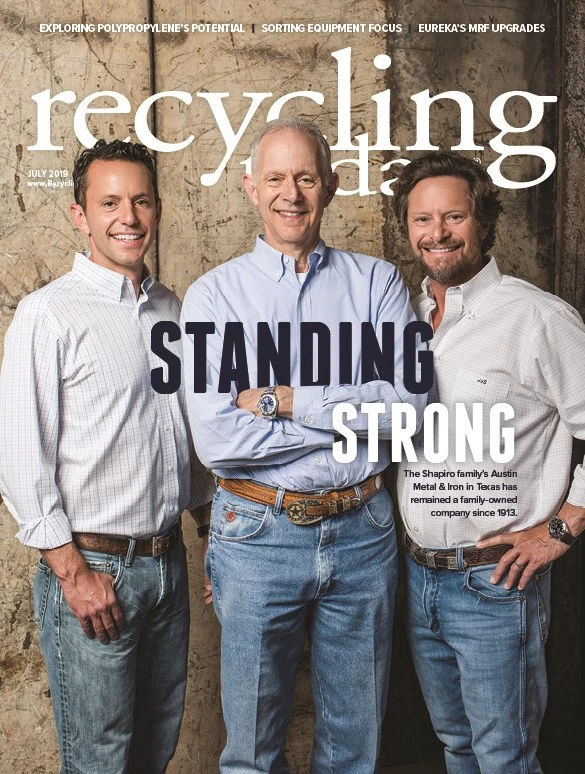
Lane Gaddy
CEO of W. Silver Recycling
There are 24 hours in a day, and Lane Gaddy says he likes to use 20 of those hours to the best of his ability. Gaddy is CEO at W. Silver Recycling, El Paso, Texas, and he also is actively involved in the manufacturing, real estate, hospitality, restaurant, liquor and finance industries. He began his career at W. Silver in 2005, but when the Great Recession hit in 2008, he says he considered it a wake-up call.
“The super cyclical nature of the scrap industry is a lot to take and has very volatile effects on cash flow,” Gaddy says. “Starting in 2009, I looked out and wanted [to do something] that had much steadier cash flows and was easier to predict.”
Gaddy diversified at that point, investing time and money into other industries. He also spends a lot of time serving on boards as well as helping with organizations in the El Paso community.
“If you ask me what I see happening in five years, I would say a smaller industry that is continuing to become more controlled by consumers, similar to what has happened in the steel space.”
“There is a sense of responsibility from business leaders to also be community leaders,” Gaddy says. “Given that El Paso happens to be one of the poorest areas in the country and that a lot of our facilities are clustered along the border in poor areas, it’s part of our company’s values to be a leader in the community. We like to be involved. That’s something we encourage employees to donate substantially to.”
Even though Gaddy works in several industries and volunteers in the community, he says his heart is definitely tied to the scrap industry.
Recycling Today (RT): How did you get your start in recycling?
Lane Gaddy (LG): W. Silver was founded by my great-grandfather William Silver sometime in the 1910s. I am [the] third generation acting in the business, fourth generation by lineage.
My grandfather asked me to come here as I was on my way to New York to start a job in finance. I decided there might be an opportunity [here], so I decided to stay in El Paso and try to resuscitate the business.
RT: What’s it like working in the El Paso community?
LG: The El Paso community is fantastic. It’s a very supportive community and one that I give a lot of credit to. I’ve had a lot of very strong mentors [in El Paso] who have helped me.
There are a lot of challenges in this community, especially right now that we’ve become the battleground for the 2020 election. There are opportunities and challenges in El Paso, but this is our home base and our core market.
RT: Are there new technologies you hope the industry will embrace?
LG: We run all our purchases through our software package, which is cloud-based. We’d love to see some of the purchase platforms really embrace the cloud.
RT: Where do you see the nonferrous sector of the industry headed in the next few years?
LG: A couple of things we’ll see is the industry continuing to shrink. I’ve seen the industry shrink substantially. Even going to ISRI (Institute of Scrap Recycling Industries) conventions, you see a lot more parts suppliers and machinery companies than you do companies that are in the actual vertical space. If you ask me what I see happening in five years, I would say a smaller industry that is continuing to become more controlled by consumers, similar to what has happened in the steel space.

Explore the July 2019 Issue
Check out more from this issue and find your next story to read.
Latest from Recycling Today
- BMW Group, Encory launch 'direct recycling’ of batteries
- Loom Carbon, RTI International partner to scale textile recycling technology
- Goodwill Industries of West Michigan, American Glass Mosaics partner to divert glass from landfill
- CARI forms federal advocacy partnership
- Monthly packaging papers shipments down in November
- STEEL Act aims to enhance trade enforcement to prevent dumping of steel in the US
- San Francisco schools introduce compostable lunch trays
- Aduro graduates from Shell GameChanger program





